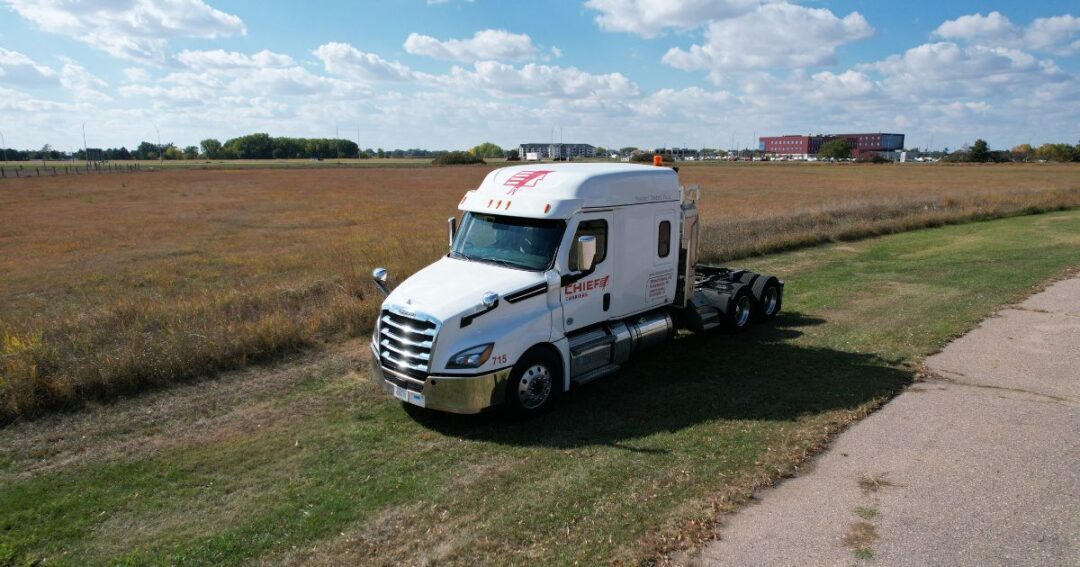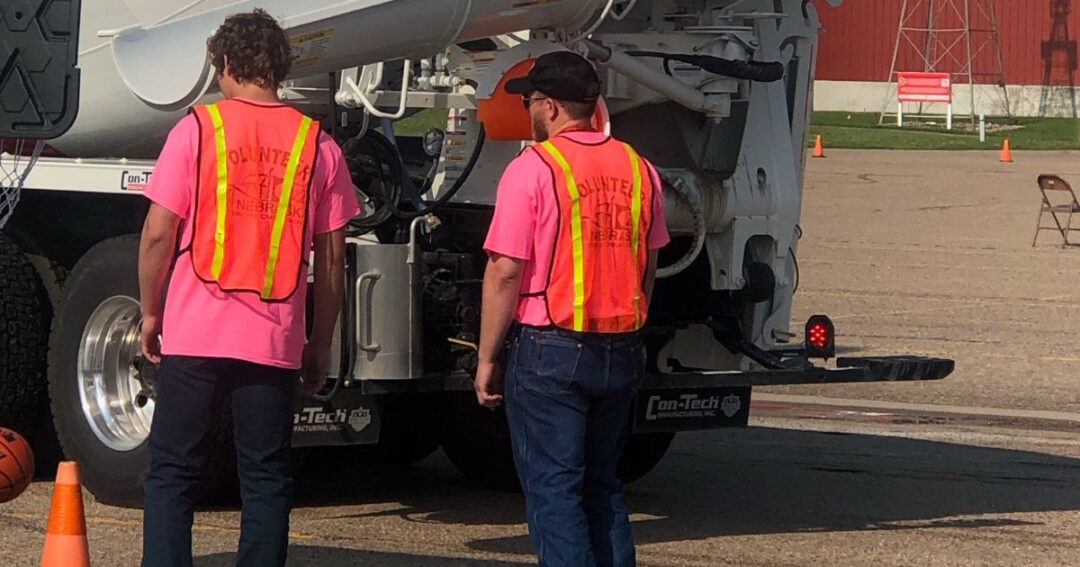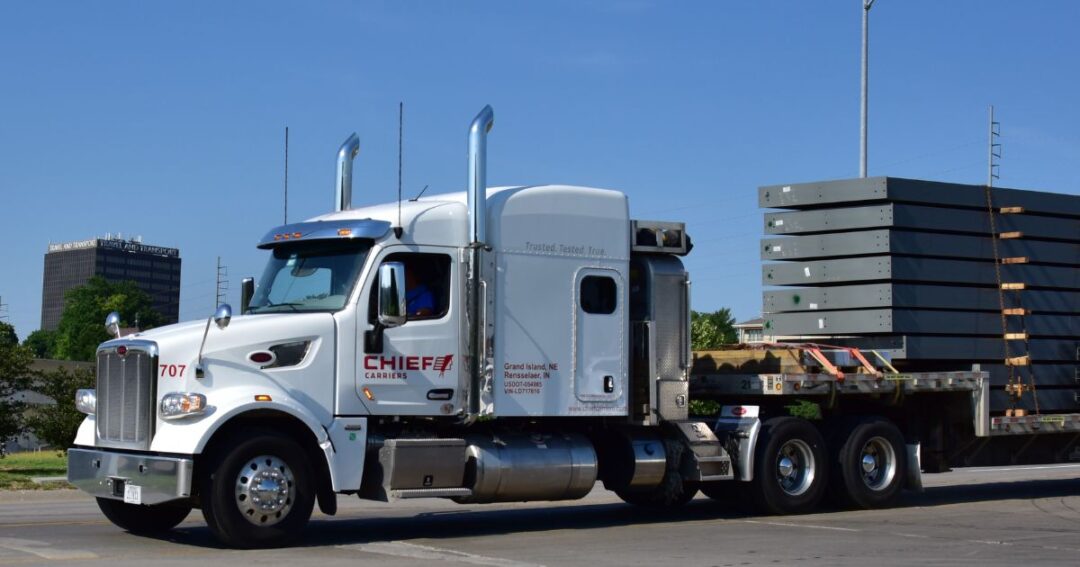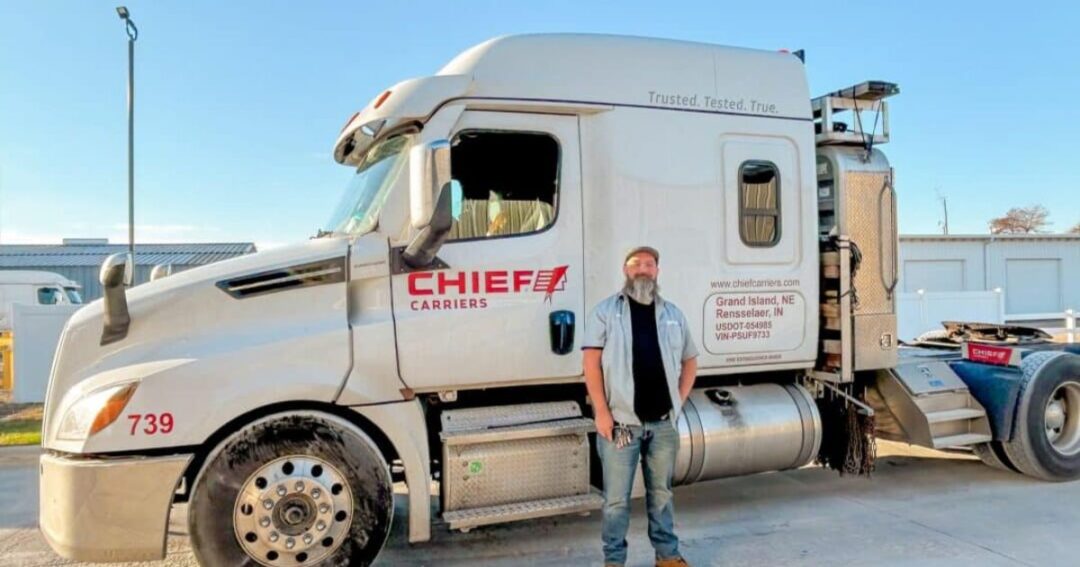Can Drivers Choose Their Truck Routes?
Welcome back to our continuous exploration of trucking at the “Driven Too Far” blog, focusing on Getting the Best Routes as a Truck Driver. I’m Andrew Winkler, your host and guide, just off another captivating episode of the “Driven Too Far: The Truth About Trucking” podcast.
Today, we’re diving deeper into a topic that’s vital to every trucker’s life on the road: Getting the Best Routes as a Truck Driver.
In our latest podcast episode, we discussed the nuances of route selection in the trucking industry. This topic isn’t just another conversation piece; it’s the bread and butter of our daily lives on the road.
Getting the Best Truck Routes
Whether you’re a seasoned veteran with thousands of miles under your belt or a newbie just starting to navigate this vast and complex industry, understanding how to secure the best routes is crucial. It affects everything from our income and job satisfaction to our work-life balance.
Now, why does this matter so much? For us truckers, the ‘best’ route is a subjective term – what works for one might not work for another.
It’s about aligning your personal and professional needs with the opportunities available.
This episode emphasized the importance of understanding different types of routes – long haul, regional, and local – and choosing the right carrier that aligns with your route preferences.
Reflecting on my own experiences, I recall the early days of my trucking career, filled with uncertainties and learning curves about route selection and relationships with dispatchers. It’s these personal connections and decisions that shape our trucking careers.
As we dive into this blog post, our goal is to extend the conversation from the podcast. We’ll explore practical advice, share additional insights, and recount personal anecdotes that resonate with both new entrants and veterans in the trucking industry.
So buckle up, and let’s steer this conversation toward mastering the art of getting the best routes as a truck driver.

Mastering the Journey: Getting the Best Routes as a Truck Drive
In the trucking world, the type of route you choose can significantly shape your career and lifestyle. Broadly, there are three main types of routes: long haul, regional, and local.
Each comes with its unique set of characteristics, challenges, and benefits, making it essential for truckers to understand these differences to make informed decisions about their career paths.
Long Haul Routes
Long haul trucking typically involves journeys of 700 miles or more. Drivers often spend weeks on the road, traversing state lines and sometimes even crossing the country. This type of route appeals to those who love the open road and the sense of adventure it brings. The main advantage here is the opportunity to see different parts of the country and enjoy a sense of freedom.
However, it also means extended periods away from home, which can be challenging for those with families or who value regular home time.
Regional Routes
Regional routes strike a balance between long haul and local routes. Truckers on these routes usually travel within a specific region, never venturing more than 500-600 miles from their home terminal or shipper.
These routes typically mean being out for about a week at a time. The perk of regional routes is more frequent home time compared to long hauls, without the intense daily pressures of local routes.
The downside can be the repetitiveness of traveling through the same regions, which might not appeal to those seeking varied experiences.
Local Routes
Local routes are attractive for drivers wanting to return home daily. These routes often start early in the morning and may involve multiple stops throughout the day. The primary advantage is the regularity of being home each night, ideal for those with families or personal commitments.
However, the trade-off includes early starts, potentially long days, and sometimes the challenge of navigating busy urban areas.
Additionally, local routes can be seasonal, with workloads varying significantly depending on the time of year, which can impact income stability.
Understanding these route types and their pros and cons helps truckers align their career choices with personal preferences and lifestyle needs.
Whether it’s the allure of long highways, the balanced rhythm of regional routes, or the daily return of local paths, each type offers unique opportunities and challenges in the trucking world.

Choosing the Right Carrier
Selecting the right carrier is a crucial decision for any trucker, as it directly influences your job satisfaction, income, and overall work-life balance. The key is to find a carrier whose route offerings align with your personal and professional goals.
This alignment is essential whether you prefer the long stretches of cross-country travel, the regional balance, or the routine of local routes.
Importance of Alignment with Carriers
The right carrier can make all the difference in your trucking career. A mismatch between your route preferences and a carrier’s focus can lead to dissatisfaction and unnecessary stress.
For instance, if you cherish regular home time but are with a carrier specializing in long hauls, you’re setting yourself up for a challenging experience. It’s vital to research and understand a carrier’s primary routes and how they align with your preferences before committing.
Evaluating Carriers for Route Opportunities
When evaluating potential carriers, consider their route structures and the frequency of different types of trips. Ask direct questions about the typical routes available for new drivers and how these might change as you gain seniority.
It’s also worth investigating the carrier’s policy on route and load selection to understand how much input you might have in the process. Pay attention to the carrier’s size and operational focus, as larger carriers may offer a wider variety of routes, while smaller companies might provide more personalized experiences.

Additional Considerations to Get Your Dream Truck Routes
Beyond routes, consider other factors like home time policies, pay structures, benefits, and the carrier’s reputation in the industry. Online forums and discussions with current or former drivers can provide valuable insights into a company’s culture and operational realities.
Remember, a carrier that supports your route preferences and respects your work-life balance can significantly enhance your career satisfaction and personal well-being in the trucking industry.
Building Relationships with Dispatchers
A strong relationship with dispatchers is fundamental for a successful trucking career. Dispatchers are more than just voices on the other end of the line; they are vital links between truckers and the loads they carry.
Building a positive, trusting relationship with them can greatly influence the quality and preference of your routes.
The Role of Dispatchers in a Trucker’s Career
Dispatchers play a critical role in a trucker’s daily life. They are responsible for assigning loads, managing routes, and ensuring timely deliveries. A good rapport with your dispatcher can lead to more favorable loads and routes tailored to your preferences.
Conversely, a strained relationship might result in less desirable assignments and a lack of support during challenges on the road.
Strategies for Effective Communication
Effective communication is key to building a solid relationship with your dispatcher. Be clear, concise, and honest in your interactions. Regularly update them on your status, any challenges you’re facing, and your availability for upcoming loads.
This proactive communication demonstrates reliability and professionalism, traits highly valued in the trucking industry.

Building Trust with Your Dispatcher
Trust is built over time through consistent and reliable actions. Show that you can be counted on by adhering to schedules, meeting deadlines, and following through on commitments. If issues arise, address them directly and seek solutions collaboratively.
Acknowledge the dispatcher’s role and express appreciation for their support and guidance. Remember, a relationship with a dispatcher is a two-way street; mutual respect and understanding are crucial for long-term success.
Fostering a strong relationship with your dispatcher is important. It’s not just about getting better routes but also about creating a supportive work environment. Through effective communication and building trust, you can ensure a more fulfilling and efficient trucking experience.
Personal Story: Early Career Misunderstandings
Reflecting back on my early days in trucking, I recall a pivotal lesson learned about route selection and communication with dispatchers. As a rookie driver, eager yet inexperienced, I faced a situation that taught me the importance of clear communication and understanding dispatcher dynamics.
This experience was a defining moment in my career, shaping how I approached route selection and interaction with dispatch teams thereafter.
Misinterpreting Dispatcher Intentions
In my first few months, I was assigned a long haul route, which was exciting but daunting. I mistakenly believed that avoiding communication with my dispatcher as I neared the end of a route would ensure a smooth transition to my much-anticipated home time.
I thought if I flew under the radar, I wouldn’t be assigned any last-minute loads that might delay my return home.

The Consequence of Poor Communication
This strategy backfired spectacularly. Not only did I miss out on potentially better post-home-time loads, but my lack of proactive communication also led dispatchers to view me as unreliable.
I quickly learned that dispatchers appreciated drivers who kept them informed and were upfront about their availability and preferences.
Lesson to Team Get Good Truck Routes
This early career blunder taught me the value of open, honest communication with dispatchers. By actively engaging with them, sharing my preferences, and being transparent about my schedule, I started receiving routes that better suited my lifestyle.
It was a hard-earned lesson in the trucking world: building a rapport with dispatchers is crucial for career growth and personal satisfaction on the road.

Proactive Communication and Route Selection
Proactive communication is a cornerstone in securing preferred routes in the trucking industry. It’s not just about expressing your route preferences but also about consistently updating dispatchers on your current status and future availability.
This level of engagement shows that you’re not just a passive participant in the routing process but an active collaborator seeking to align your needs with the operational requirements of the company.
The Impact of Proactive Communication
Being proactive in your communication with dispatchers can significantly influence the quality and type of routes you are assigned. Dispatchers are more likely to consider your preferences if they know them in advance and understand your willingness to cooperate.
Regularly sharing your likes, dislikes, and any changes in your personal circumstances can help dispatchers tailor their route assignments to better fit your profile.

Tips for Influencing Route Assignments
- Regular Check-ins: Make it a habit to check in with your dispatcher regularly, not just at the end of a trip. Inform them about your progress and any upcoming personal commitments.
- Express Preferences Clearly: Be clear about your route preferences, including the types of loads you’re comfortable with and the regions you prefer to drive in.
- Be Flexible and Reliable: While it’s important to express your preferences, also show a willingness to be flexible, especially during peak times or special circumstances. Establishing yourself as a reliable driver who can handle various types of loads and routes can lead to more favorable assignments in the future.
- Provide Constructive Feedback: After completing a route, share your experiences and any feedback constructively. This can help dispatchers understand what works best for you and what doesn’t.
Proactive communication is not just about speaking up; it’s about building a partnership with your dispatcher. By actively participating in the route selection process and showing a collaborative spirit, you can significantly improve your chances of getting routes that align with your preferences and lifestyle.
Navigating Route Choice and Company Policies
In the trucking industry, understanding and navigating the boundaries of route choice within company policies is crucial. While drivers may have preferences, it’s essential to recognize that these preferences must align with the company’s operational policies and customer commitments.
Balancing personal route choices with company policies is a delicate act that requires awareness and respect for the rules set by the employer.
Understanding Company Route Policies
Every trucking company has specific policies regarding route assignments and driver autonomy in choosing their routes. These policies are often influenced by factors such as customer needs, efficiency, safety, and regulatory compliance. It’s important for drivers to familiarize themselves with these policies to understand the extent of their flexibility in route selection.
Ignorance of company policies can lead to conflicts and misunderstandings.

Implications of Deviating from Assigned Routes
Deviating from assigned routes without proper authorization can have significant consequences. It can lead to inefficiencies in fuel usage, increased operational costs, and potential delays in delivery schedules.
Moreover, such deviations can strain relationships with dispatchers and erode trust. Companies rely on drivers to follow assigned routes for optimal performance and customer satisfaction.
Balancing Flexibility and Compliance
While some flexibility might be available, it’s usually within the framework of the company’s broader operational strategy. Drivers should communicate their preferences and seek approval for any deviations from standard routes.
This approach ensures compliance with company policies while providing an opportunity for drivers to express their needs. In cases where personal circumstances require route adjustments, transparent and early communication with dispatchers is key to finding a mutually agreeable solution.
Navigating route choice in the trucking industry requires a balance between personal preferences and adherence to company policies. Understanding these policies, communicating effectively, and respecting the operational needs of the company are essential for a successful and harmonious trucking career.
Efficiency and Route Planning
Efficient route planning is a critical aspect of the trucking industry, impacting both the company’s bottom line and the driver’s personal and professional life. Optimal route planning ensures timely deliveries, maximizes fuel efficiency, and minimizes wear and tear on vehicles.
For truck drivers, efficient routing is not just about getting from point A to point B; it’s about maximizing earnings, ensuring safety, and maintaining a manageable work-life balance.

Importance for the Company
From a company’s perspective, efficient route planning leads to reduced operational costs and enhanced customer satisfaction. By optimizing routes, companies can ensure timely deliveries, which is crucial for maintaining good relationships with clients. Efficient routing also means less fuel consumption and reduced maintenance costs, directly impacting the company’s profitability.
Moreover, efficient routes contribute to a sustainable operation by minimizing the environmental impact of trucking.
Importance for the Driver
For drivers, efficient route planning directly influences income and job performance. Routes that are well planned and executed can lead to more miles covered in a shorter time, increasing the potential for higher earnings.
Efficient routes also reduce the stress of tight schedules and unpredictable delays, contributing to better job satisfaction and performance.
Additionally, well-planned routes allow drivers to manage their work hours effectively, ensuring compliance with Hours of Service regulations and maintaining a healthy work-life balance.
Impact on Income and Performance
Efficient routing can significantly impact a driver’s income. By covering more miles with less fuel and time, drivers can take on additional loads, boosting their earnings. Demonstrating an ability to efficiently manage routes can lead to recognition as a reliable and proficient driver, potentially opening doors to more lucrative and desirable assignments.
Good route management also reflects positively on job performance evaluations, which can affect career advancement opportunities.
Efficient route planning is a vital skill in the trucking industry, benefiting both the company and the driver. It enhances operational efficiency, reduces costs, and improves driver satisfaction and performance, ultimately contributing to the success and sustainability of the trucking profession.

Becoming an ‘A Player’ in Route Selection
Achieving the status of an ‘A player’ in the trucking industry significantly increases a driver’s influence over route selection. Excelling in your role as a trucker involves more than just driving skills; it encompasses reliability, communication, and a commitment to the company’s goals.
Gaining this recognition from dispatchers and management can lead to more autonomy in choosing preferred routes and loads.
Demonstrating Reliability and Professionalism
Reliability is the cornerstone of becoming a top performer. This means consistently meeting delivery deadlines, maintaining a clean safety record, and being dependable in all aspects of the job.
Demonstrating professionalism in every interaction, whether with dispatchers, clients, or other drivers, also builds your reputation as a reliable and trustworthy team member. These qualities make dispatchers more inclined to consider your preferences when assigning routes.
Effective Communication and Initiative
Effective communication with dispatchers is critical. Keep them informed about your availability, any challenges you face on the road, and your preferred routes. Showing initiative by proactively discussing future loads and expressing interest in specific routes or types of cargo can also set you apart. Being proactive shows dispatchers that you are engaged and committed to the company’s success.
Continual Improvement and Adaptability
Top performers are always looking to improve. This might involve seeking additional training, staying updated on industry trends, or adopting new technologies to enhance efficiency.
Adaptability is also key; being willing to take on different types of routes when needed demonstrates your commitment to the team’s success. This flexibility, combined with a drive for continual improvement, makes you a valuable asset to the company and increases your chances of being given preferred routes.
Becoming an ‘A player’ in route selection is about proving yourself as a reliable, communicative, and adaptable driver. By excelling in these areas, you can gain greater control over your routes, leading to a more satisfying and successful career in trucking.
Recapping Key Insights
In conclusion, securing the best routes in trucking is an intricate process that requires understanding various factors and actively participating in the decision-making process.
Throughout this discussion, we’ve explored several key aspects that play a vital role in how routes are assigned and how drivers can influence these decisions.
Let’s recap these insights to cement our understanding and apply them effectively in our trucking careers.

Understanding Different Route Types
Firstly, recognizing the differences between long haul, regional, and local routes is crucial. Each type offers unique advantages and challenges, and understanding these helps in making informed decisions about the routes that best align with personal preferences and lifestyle needs.
Choosing the Right Carrier
Selecting a carrier that matches your route preferences is fundamental. It’s essential to research and understand a carrier’s route structures and policies to ensure they align with your professional goals and personal lifestyle.
Building Relationships with Dispatchers
The importance of building a positive relationship with dispatchers cannot be overstated. Effective communication and demonstrating reliability are key to earning their trust, which in turn influences the quality of routes you are assigned.
The Importance of Proactive Communication
Proactive communication plays a significant role in securing preferred routes. Regularly updating dispatchers on your status and preferences helps in tailoring route assignments to better fit your profile.
Navigating Company Policies and Efficiency
Understanding and adhering to company policies while seeking efficiency in route planning is vital for both personal income and job performance. Balancing flexibility with compliance is crucial in navigating route choices effectively.

Truck Routes
In wrapping up our discussion on securing the best routes as a truck driver, it’s important to reiterate the pivotal roles of alignment, communication, and performance. These elements form the foundation of a successful trucking career, directly impacting your satisfaction with the routes you drive and your overall well-being in the industry.
The Essence of Alignment
Alignment between your personal preferences and the carrier’s offerings is crucial. Choosing a carrier that aligns with your route preferences is the first step in ensuring that your trucking career is not only profitable but also enjoyable. This alignment sets the stage for a more fulfilling professional experience.
The Power of Communication
Effective communication with dispatchers is a game-changer. It’s about establishing a rapport, sharing your preferences, and being upfront about your availability. Good communication helps in building trust, which in turn influences the quality of your route assignments.
The Impact of Performance
Lastly, your performance on the road plays a crucial role. Being reliable, adaptable, and continuously seeking improvement are traits that mark you as a top performer. Excelling in these areas can lead to more autonomy in choosing preferred routes, ultimately enhancing your career satisfaction and success in the trucking industry.
For a more in-depth exploration of these topics and to hear more stories from the road, I invite you to listen to the full episode of “Driven Too Far: The Truth About Trucking.” You can find it on our website, as well as on Spotify, Apple Podcasts, and YouTube. Each episode is designed to give you the insights and advice you need to navigate the trucking industry’s challenges.

Andrew Winkler
Andrew Winkler is the only executive in the trucking industry willing to get in the cab and listen to you. He started out in the driver’s seat like you–loving a life on the road, missing a family at home, and yelling at dispatch over the phone. He knows how it feels to be driven too far, which is why he’s giving you the truth about trucking so you can have both your family and your career.
Interested in having Andrew Winkler appear as a guest on your show? Have a show topic idea? Want to appear as a guest on Driven Too Far? Have a question?

